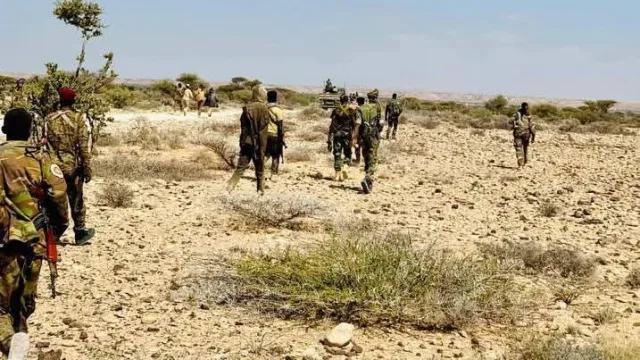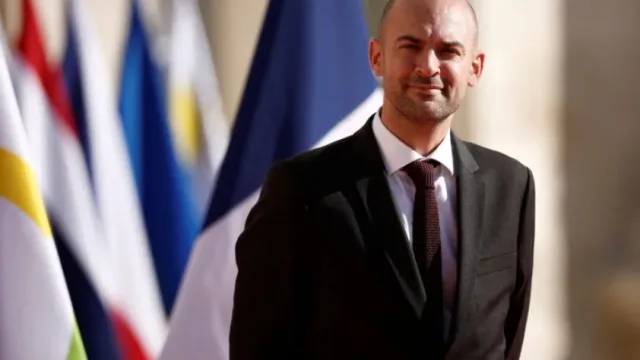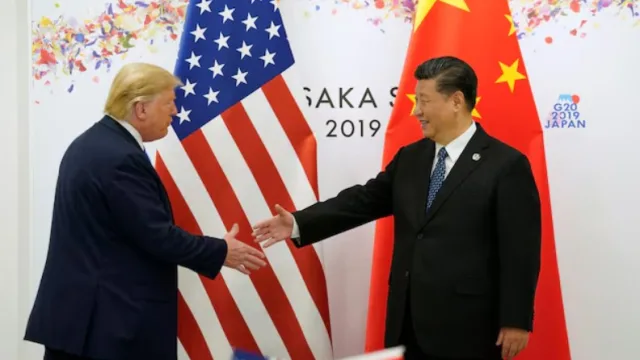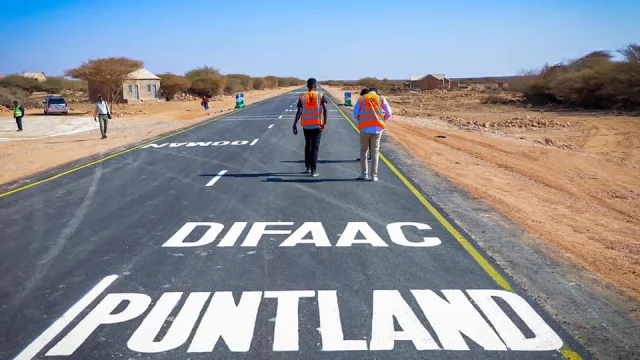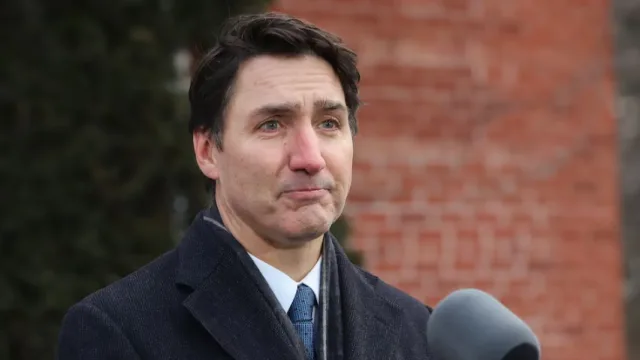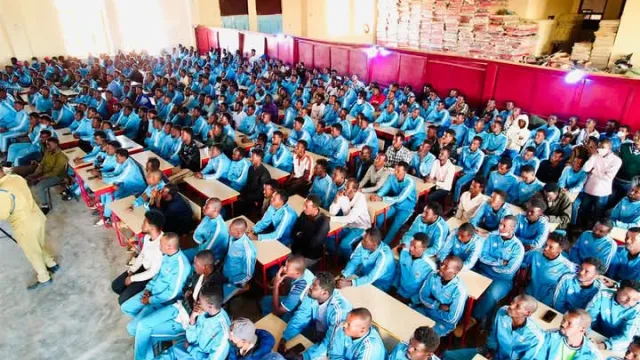Geographically, the two nations are pretty far from each other but had quite fascinating historical relations…
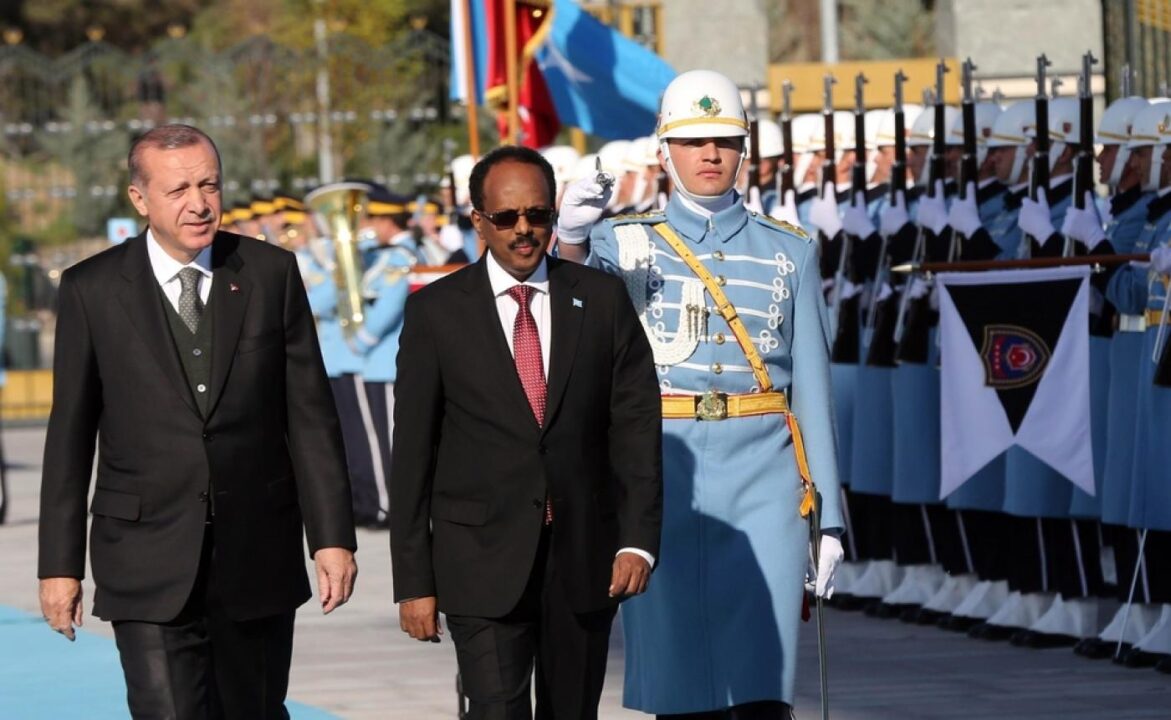
Geographically, the two nations are pretty far from each other but had quite fascinating historical relations dates back to the Middle Ages. Significantly, the Ajuran Kingdom, which existed in Somalia, had significant commercial and military ties with the Ottoman Empire in the 1500s. Also, the Ottomans helped the Ajuran in their fight against the Portuguese aggression in 1580. But, as the two nations turned into republican systems, their relations were not significant except a Turkish embassy in Mogadishu, the capital of Somalia, which was opened in 1979 but was closed after the civil war had broken out in Somalia in 1991.
Turkey started to include the war-torn Horn of the African nation in its foreign policy priorities with humanitarian assistance in 2011 when severe droughts hit the East African nation, which affected millions of Somalis badly. Turkey was the only country that responded swiftly, providing the needed humanitarian aid, worth more than $ 201 million to help the needy Somali people. Turkey could easily win the hearts of the desperate Somalis. But Turkey’s involvement and presence in Somalia did not just remain a humanitarian mission but began to aim other areas such as trade, development, and security. Turkish private business companies started collaborating with their Somali counterparts.
Erdogan’s Visit as a Breakthrough
Turkey’s involvement in Somalia became very visible soon after the president of Turkey; the prime minister then paid a historic visit to Mogadishu in 2011, which made him the first non-African leader to visit Somalia in two decades. With his massive delegation amid a severe famine in the country, the visit positively changed the course for Somalia. From that historic moment, the developmental projects by the Turkish government and the bilateral agreements between the two nations skyrocketed and grew at a rapid pace. The bilateral agreements between the two countries ranged from education and health to security and peacebuilding.
In 2010, a military agreement was signed, which included training Somali military personnel in Turkey for the Somali army to revive and resist the Al-Shabab terror organization. In September 2017, the Turkish Armed Forces established the TURKSOM Military Training Base in the capital of Somalia after a bilateral agreement between the two nations. The base is the most significant Turkish military base outside of Turkey. It provides training for almost one-third of the entire Somali army, as the ambassador of Turkey to Somalia stressed.
In 2012 Turkish Airlines started regular flights to Aden Adde International Airport and has taken necessary steps to normalize the country in the international arena. Favori LLC, a Turkish company, increased the capacity of the airport from 15 to 60 aircraft after a bilateral agreement between the company and the Somali authorities, which allowed the company to run the airport. Also, Mogadishu port was leased to a Turkish company called Albayrak Group in 2013. The agreement enables the company to claim almost 45 percent of the whole shares of the port in a 20-year deal. In return, the company is to provide training for the Somali staff as the company rehabilitated and built the necessary infrastructure required for the port.
The Rivalry between Turkey and Western countries
Turkey’s assistance to Somalia, in terms of dollars spent, is about 1 billion since 2011. But that is no way near to the amount of other major western donors such as the UK and US have spent to Somalia. But what made Turkey’s assistance to Somalia so unique is that they have preferred to be straight on the ground rather than via a third party. The humanitarian aid and developmental projects by Turkey in Somalia are very much visible as they built schools, hospitals, and paved roads. While the money from other donors usually ends up in the hands of so-called experts and corrupted government officials.
The increasing influence of Turkey in the Horn of Africa drew the attention of the other world powers such as the USA, China, and The UK as they rushed to have a very close relationship with the war-torn Horn of the African nation and reopened their embassies in Mogadishu. It can be said that it is Turkey who made Somalia be seen in the international arena once again after it had been forgotten, ignored, and regarded as a failed state. Still, its geopolitical location in the world map, where approximately one-third of the international trade passes through, makes it very important in the eyes of competing superpowers.
Somalia’s strategic location as the gateway to mainland Africa is plain as the nose on the face. So that is why gulf nations are the formidable rivals of Turkey in Somalia and the region. Gulf nations are trying hard to have some influence in Somalia. But, arguably, they are using very different approaches as Turkey’s approach is to emphasize and pay attention to the fundamental aspects, whether it is providing humanitarian assistance to the very needy society or providing training for the military personnel. At the same time, gulf nations have chosen to directly influence and shape the political dynamics and situations in Somalia using their cash. Turkey seems to be winning here as their approach looks useful in gaining more sympathy from society at large.
It is worth mentioning that Turkey’s involvement in Somalia started at a rapid base but showed a slowdown in recent years. For example, aid assistance only in five years. The amount of aid from Turkey to Somalia reached one billion US dollars, which is an incredible amount of aid to Somalia by a single country in such a short period. The flow of the developmental assistance from Turkey to Somalia has been the highest compared to the other developmental aid flows from other donor nations. But in recent years, that changed, and other major western donors took over the gear, especially UK, Germany, Sweden, and the US remained the top developmental aid providers in Somalia, as explained in the graph below.
Recent Developmental Aid Flows in Somalia by Partner Countries

As the graph suggests, there is a considerable degradation in the Turkish developmental aid trend from 2014 to its lowest point in 2016, and that was because of the coup attempt accrued in turkey in that same year.
Is Turkey losing in Somalia?
Even though their relationship has begun at a high pace with high expectations and ambitions, lately, Turkey’s role in Somalia has been slowing down or diminishing. The West’s return to Somalia and mainly the European countries and America has much to do with the presumably reducing role of Turkey in Somalia. By all accounts, the West had abandoned Somalia after the multinational force failed to capture General Aidid, which ultimately led them to withdraw from the country in 1995. But the emergence of the Islamic Courts Union and later Al-Shabaab have compelled them to return and reinitiate their efforts to reconstruct the failed state in Somalia. Since then, the West has been in charge of this mission of putting the humpy dumpy state back together.
However, the western countries, combined, have been giving enormous aid to Somalia to help the government deliver the needed services to the citizens; however, the heavy dependency on foreign resources is a sign of economic fragility and political delicateness. On the other hand, it is a reminder of the tremendous power and the impact which the donors have over the political and governance systems of the country. The stance some the embassies of those countries took amidst the latest political conflict between the federal government and federal member states regarding the electoral model and election time showcase the critical role those donors or the West play in the ongoing state-building process. Nevertheless, its cluster clear that the massive aid donations gave the West domination in the political process, allowing them to have a significant role when decisive matters are discussed and decided on one hand, and outmuscle other rival players, on the other hand. Turkish dilapidation in its contribution to peace and state-building is an excellent example of western domination and the diminishing influence of the Turks in Somalia.
Indeed, Turkey has established a good relationship with Somalia since the unprecedented visit of Erdogan in 2011. Several state actors and non-state actors are still operating in Somalia with developmental and humanitarian mandates. Simultaneously, there are also growing economic relations between the two countries as many Somalis, particularly the business community, have begun to import most of their goods from Turkey. Apart from that, the military base in Mogadishu also contributes to the rebuilding of the Somali national army. As said, training Somali soldiers have been one of its primary mandates, which makes military support to be the only consistent aid from Ankara. In the early years of their marriage, the Turkish government provided budgetary support to the Somali government. However, there is no information on whether it is continuing or not, another sign of Ankara’s worry and agitation on its relationship with Mogadishu.
The political instability and inconsistent of leadership in Somalia is another factor that might force Ankara to slow down and think twice before it is committed to this marriage. In a war-torn country like Somalia, it is an achievement if the administration finishes its term without a no-confidence motion, which means a lack of unified and studied foreign policy. Still, if there is something that can be called a foreign policy, it has no priorities and primacies. It is indeed another symptom Somalia inherited from the thirty years of war and dysfunctionality. Of course, relationships among countries flourish when there are strong institutions that can carry out what was agreed upon or negotiated. Therefore, Somalia lacks compelling and reliable government institutions, which compels all emerging powers to form a relationship with a war-torn country like Somalia. And Turkey is not exceptional.
Turkey is the winner and the loser at the same time in the scrumble for Somalia. The reception and the welcome Erdogan received when he first visited Mogadishu was a sign of desperation that Somalis needed an international ally, one that can help them recuperate the international community’s attention. Of course, Somalia has got international actors’ full attention from the visit, and he (Erdogan) won the hearts and minds of Somalis. The return of the international community, particularly the western powers, including the US, the UK, and others, cost them their influence in the political process. However, it is too early to say whether Turkey is losing Somalia to the West. Still, one thing is evident that Turkey has no longer is taking an active role in the ongoing process of peace and state-building in Somalia compared to the US or other western nations. The latest political developments in the country give clear evidence of this. Among these, Ankara had no role in the last talks between Somaliland and Somalia, which they facilitated back then in 2012. All these factors combined points to the fact that Ankara is no longer the key actor in Somalia.
By: Abdiqadar Abdiqani Mohamed; a Ph.D. candidate in economics at Hacettepe University
By: Mohamed Salah Ahmed; a Ph.D. candidate in political science at Ankara Yildirim Beyizit University
